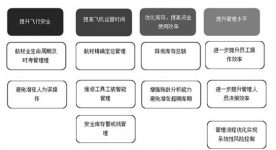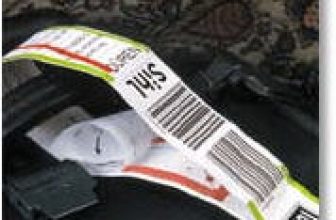
Application analysis of RFID technology in airport management
[ad_1]
With the rapid economic development, the civil aviation industry has achieved unprecedented development, and the passenger and cargo volume of the airport continues to increase, and people have higher and higher requirements for the service quality of the airport. Because RFID technology has been widely used in all walks of life, large airports at home and abroad are also gradually using RFID technology to improve airport production, operation and service efficiency.
What are the applications of RFID technology in airport management?
1. Airport baggage sorting management
Someone gave a vivid analogy to the baggage sorting process: “The baggage system of an airport is like the road traffic planning of a city.”
The working process of the baggage sorting management system is: at the check-in counter, the baggage is affixed with a barcode label; after the security check, the baggage is transported to the entrance of the baggage handling system; an UHF RFID reader is used in the system With four antennas, it forms a full 360-degree coverage; after the reading and writing device obtains the tag information, it is sorted and tracked until the luggage reaches the passenger.

Advantages of baggage sorting management system:
1. Scanning fast
Barcode scanning has a one-to-one correspondence, while UHF RFID readers can identify and read multiple RFID electronic tags at the same time.
2. Small size and diversified shapes
The reading of RFID technology is not limited by size and shape, and does not need to match the fixed size and printing quality of the paper for reading accuracy.
3. Strong anti-pollution ability and durability
The traditional barcode carrier is paper, which is susceptible to contamination, while the RFID tag stores the data in the chip, so it can be protected from contamination.
4. Reusability
Most barcodes cannot be changed after they are printed, while RFID tags can repeatedly add, modify, and delete the data stored in the RFID tag to facilitate the update of information.
5. Penetrating and barrier-free reading
When covered, RFID can penetrate non-metal or non-transparent materials such as paper, wood, and plastic, and can perform penetrating communication. The barcode scanner must be at a close distance and no object blocking the situation before it can read the barcode.
6. Security
Since RFID carries electronic information, its data content can be protected by a password, so that its content is not easily forged and altered.
Through the baggage handling system, airlines can effectively solve most of the problems of misloading and misdelivery of checked baggage, and greatly reduce the amount of compensation for lost baggage.
2. Tracking and maintenance of RFID aircraft maintenance
The label tracking of aircraft parts can reduce the production of fake and shoddy products and ensure that each part is delivered in time on demand. The tracking system ensures the visibility of maintenance tools in the warehouse and the use process, improves work efficiency and reduces costs.
3. Warehouse management at the airport
Large airports have a lot of cargo, and it often takes a lot of time to find a cargo. Through the goods information recorded on the RFID electronic tags on the goods, the status, location and other information of the goods can be grasped through the unique number of the goods, which is convenient for goods management.
4. Aircraft oxygen generator management
Delta Air Lines uses RFID technology to manage the oxygen generator and understand the expiration time of the oxygen generator. Checking the information of the oxygen generator through the RFID UHF handheld machine improves the work efficiency and reduces the information error rate.
5. Passenger Service
The application of RFID technology in passenger services includes: e-tickets, VIP services, personalized services, airport navigation services, etc. The use of e-tickets avoids the embarrassment of being unable to board the plane due to lost or forgotten tickets; VIP services can use proprietary RFID VIP cards to achieve convenient services; humanized services can evacuate crowds and retrieve lost children through personal positioning, etc. Service; Airport navigation is realized by personal positioning and electronic map technology.
Six, security
In terms of access control, the access card is used to prevent authorized personnel from entering the restricted area. In terms of the flight area, GPS technology is used to monitor the entire process of aircraft landing and take-off in real time.
According to relevant statistics (incomplete statistics) in Zhang Zhenxun’s “RFID Application in Airports”, 80 airports worldwide have adopted RFID tags to track and process packages. The 80 airports are from the United States (32), Europe (22), Canada, Central and South America (11), Asia (9), the Middle East (2), Australia (2), New Zealand (1) ) And South Africa (1).

Conclusion:
The RFID technology industry has broad prospects and huge market potential, and it will be more and more widely used in airport management. With the reduction of the production cost of RFID electronic tags and other products, RFID technology will be further promoted and applied.
[ad_2]





